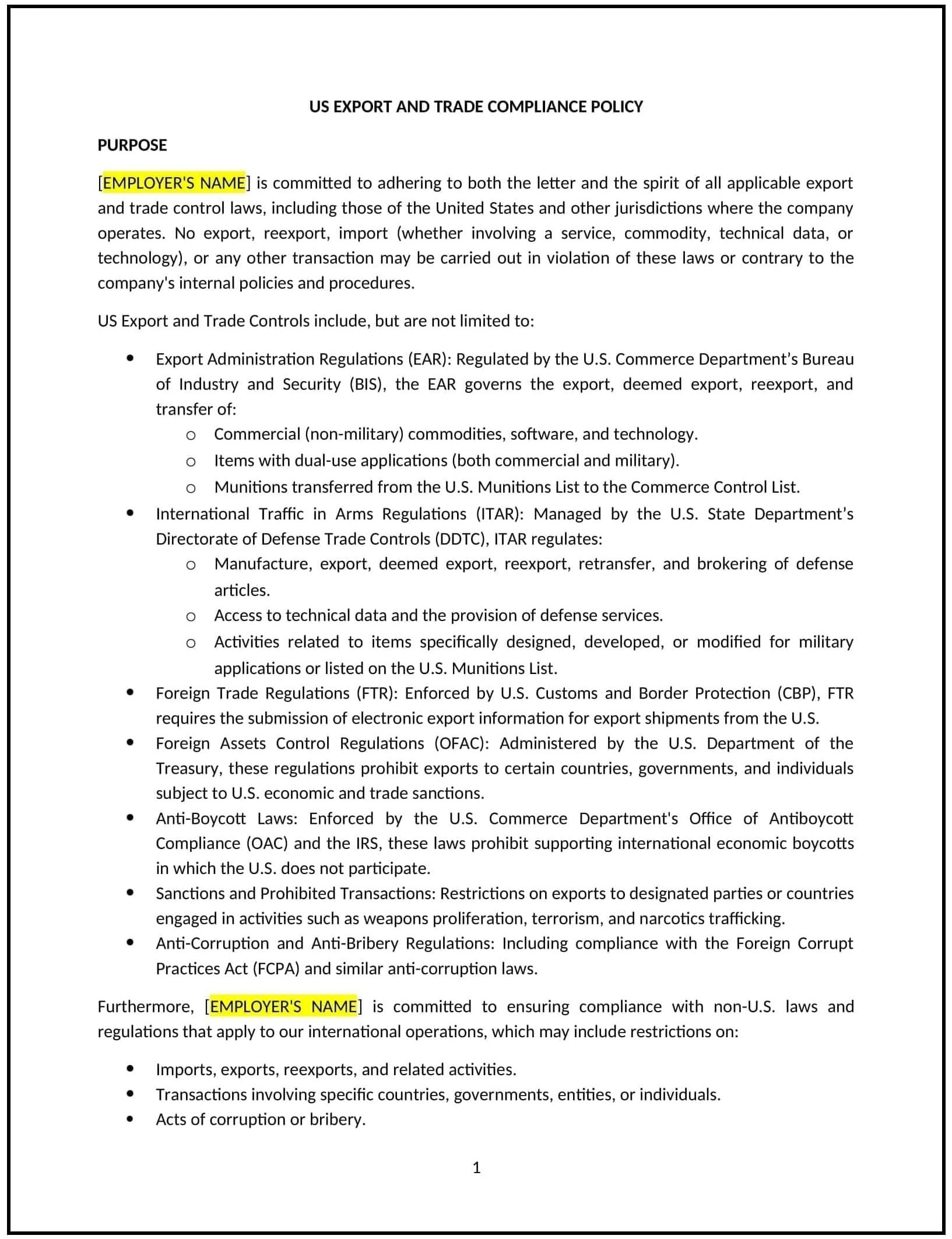US export and trade compliance policy (Tennessee): Free template
Got contracts to review? While you're here for policies, let Cobrief make contract review effortless—start your free review now.

Customize this template for free
US export and trade compliance policy (Tennessee)
This US export and trade compliance policy is designed to help Tennessee businesses establish guidelines for complying with federal export control laws and regulations. It outlines procedures for ensuring that exports of goods, technology, and services comply with US trade laws.
By adopting this policy, businesses can reduce legal risks, protect national security, and align with federal export regulations.
How to use this US export and trade compliance policy (Tennessee)
- Define export controls: Clarify what constitutes an export, such as shipping goods, transferring technology, or providing services to foreign entities.
- Set compliance procedures: Outline steps for ensuring compliance, such as screening customers, obtaining export licenses, and maintaining records.
- Address training requirements: Provide training for employees involved in export activities to ensure they understand compliance obligations.
- Establish reporting mechanisms: Specify how employees can report potential compliance violations or concerns.
- Train employees: Educate staff on export control laws and their responsibilities under the policy.
- Review and update: Assess the policy annually to ensure it aligns with evolving federal regulations and business needs.
Benefits of using this US export and trade compliance policy (Tennessee)
This policy offers several advantages for Tennessee businesses:
- Reduces legal risks: Minimizes the potential for fines, penalties, or legal disputes related to export violations.
- Protects national security: Ensures compliance with laws designed to safeguard US interests.
- Enhances transparency: Provides clear guidelines for employees regarding export activities.
- Builds trust: Demonstrates a commitment to ethical and legal business practices.
- Aligns with best practices: Supports a structured approach to export compliance.
Tips for using this US export and trade compliance policy (Tennessee)
- Communicate the policy: Share the policy with employees and include it in the employee handbook.
- Provide training: Educate staff on export control laws and their responsibilities under the policy.
- Monitor compliance: Regularly review export activities and documentation to ensure adherence.
- Address issues promptly: Take corrective action if compliance violations are identified.
- Update regularly: Assess the policy annually to ensure it aligns with evolving federal regulations.